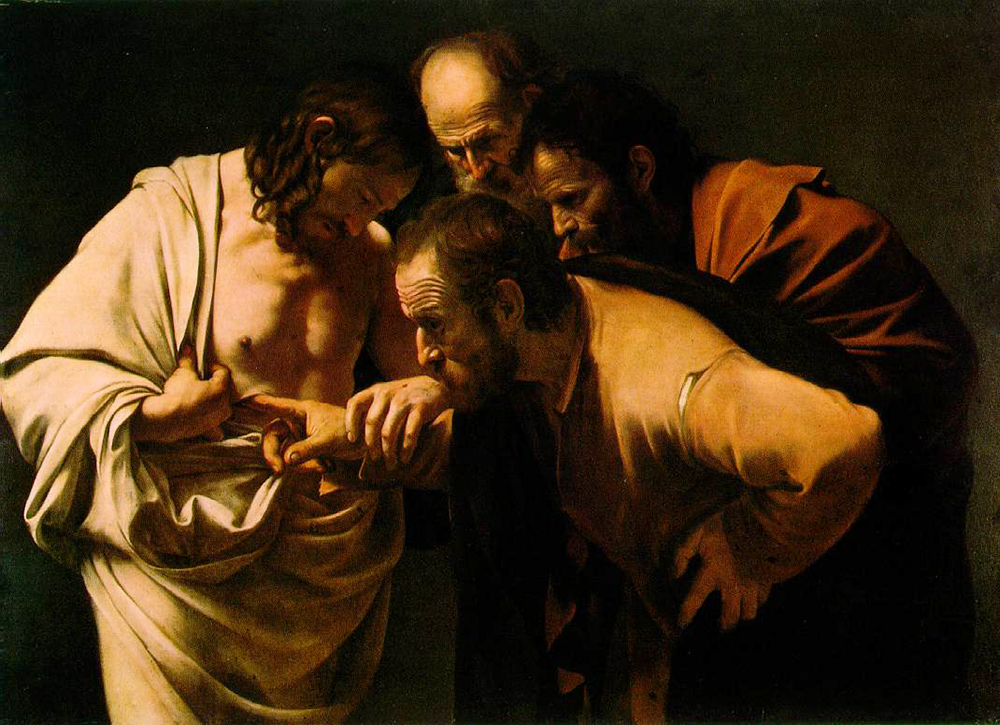
Potsdam. (Photo: Wikimedia Commons)
In the last two columns, motivated by an interesting essay on Kierkegaard in the March 18 issue of the Jesuit weekly America, I commented on the philosophy of the Danish existentialist Soren Kierkegaard (1813-1855). In last week’s column I admitted that my comments on Kierkegaard may
be more Lauder than Kierkegaard. I focused in both columns on what Kierkegaard described as the religious stage of existence. He claimed that this stage involved a leap of faith and also had the three characteristics of inward, subjective and absurd.
In the two columns on Kierkegaard there was one question I did not deal with and that was the status of the person who does not consciously believe in God. I would like to offer some ideas
about such a person and though I am using what Kierkegaard taught about the third stage of existence, the ideas in this column are mine and are not an attempt to present what Kierkegaard thought about the person often characterized as an “unbeliever”. It is clear that when Kierkegaard wrote about the third stage he was writing about someone who consciously believed in God. What about the person who does not consciously believe in God? That is the person I am wondering about in this column.
As I think about the person who does not consciously believe in God and is often described as an “unbeliever,” I first remind myself that God unconditionally loves everyone and that God’s love will never be withdrawn. Even if an individual commits the most horrible sin, God will not stop loving that person. So every person is being called or invited by God into a love relationship. Why are there people who don’t seem to respond to that invitation? There seem to be many possible reasons why an individual does not seem to respond positively to God’s invitation.
Some of the reasons why people are not aware of God’s love might be their family background, the schools they attended, the members of religion who have not impressed them, scandals in the church, the media, those with whom they spend time. I am sure there are many more reasons. What interests me is whether such people might be close to God though they might not even consciously believe in God.
Could it be that some people encounter God through other commitments than a conscious commitment to God? Of course only God knows the answer to that question but, though I could never prove it, I think some people do. I have that opinion because of the many people I have met who seem like good people but have no apparent involvement with religion. Every genuine act of love is inspired by the Holy Spirit. If a person is kind, honest in business dealings, faithful to marriage vows, unselfish in personal relationships, trying to help those who suffer either from sickness or poverty, would this not be a sign of God’s love operative in the “unbeliever’s” life? I think it could be. How else can we account for the goodness of the ”unbeliever” or of the many good acts which the “unbeliever” performs?
As I am writing this column, images of “unbelievers” are coming to mind. So many seem like good people. What else could be the cause of their goodness if not the Holy Spirit? I have come to think that there is a danger that those of us who identify ourselves as believers can imagine the presence of the Holy Spirit in the world in too limited a way. I will offer one example to illustrate what I am thinking about the presence of the Holy Spirit in the lives of “unbelievers.”
I have a friend who has never been affiliated with any religion. In her upbringing there was no presence of any religion. She is a very dedicated teacher, working many hours every day to help her students. She frequently has said to me, “Aren’t I foolish? Why am I working so hard?” Apparently she does not know why she is working so hard, why she is so unselfish in relation to her students. I think I do. I think she is so unselfish because she is responding to the loving presence of the Holy Spirit in her life even though she may be unable to identify that presence. Once she said to me that she could believe that there is a mystery to life. I think that what she means by mystery may be what I mean by God.
There certainly is a mystery to life and the Holy Spirit breathes where It will. Wherever we find goodness, unselfishness, genuine love, I think we are seeing some results of the Holy Spirit’s presence.
Father Lauder is a philosophy professor at St. John’s University, Jamaica. He presents two 15-minute talks from his lecture series on the Catholic Novel, every Tuesday at 9 p.m. on NET-TV.
